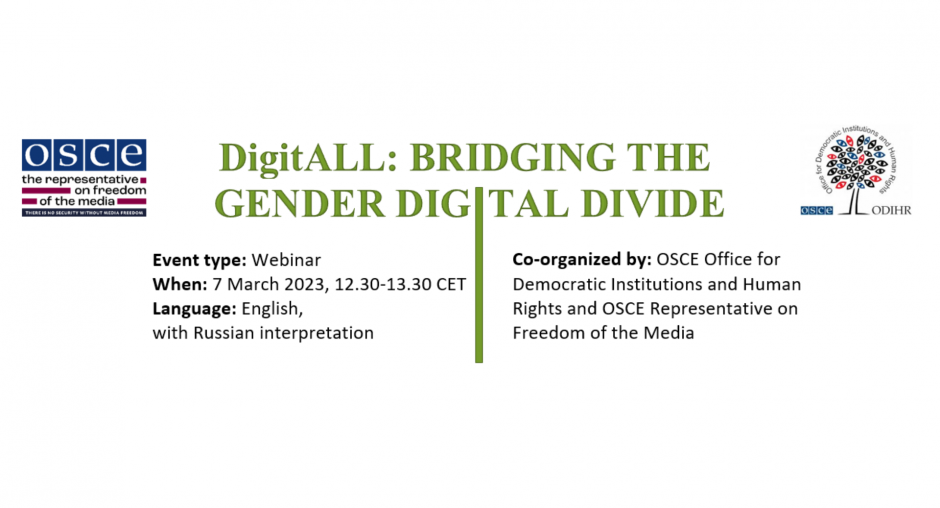DigitALL: Bridging the gender digital divide
When
Where
Organized by

Gender-responsive design, development and deployment of technologies can be a tool to combat existing gender inequalities and empower women and girls. Decreasing the digital divide is vital for their meaningful and equitable inclusion in democratic life, in times of peace and in times of conflict. To mark International Women’s Day, themed “DigitALL: Innovation and technology for gender equality” in line with the priority theme of the 67th Session of the Commission on the Status of Women’s, ODIHR and RFoM will organise an online discussion to address the ways in which innovation and digital technologies can be leveraged to combat the gender digital divide, empowering women and girls to achieve equity in the OSCE region by increasing their access to information and enjoyment of freedom of expression.
The meeting’s deliberations will be used, among others, to inspire further action within the OSCE on combatting the digital divide as a key means to ensure equal access to information, freedom of expression and other human rights for women and girls in the OSCE region.
Registration details
Please register here to attend the webinar.
Background
ODIHR works to strengthen gender-equality in institutions, identify discriminatory laws and policies, and increase women’s participation in political and public life. As agreed by OSCE participating States, “[t]he full and equal exercise by women of their human rights is essential to achieve a more peaceful, prosperous and democratic OSCE area”.
The RFoM has repeatedly emphasized that gender inequalities, including as reflected in the gender digital divide, constitute severe obstacles to the full enjoyment of freedom of opinion and expression. The 2022 Joint Declaration on Gender Justice and Freedom of Expression, for example, emphasizes that access to information is critical to women’s agency and empowerment and lies at the core of the right to freedom of opinion and expression.
OSCE participating States have recognized that the digital divide presents a particular challenge to democratic values, and have committed to paying particular attention to women, youth and people with disabilities in “bridging the digital divides”. Importantly, combating the gender digital divide and ensuring equal access to information, technologies and services for women and girls play a role in creating more equal societies.
